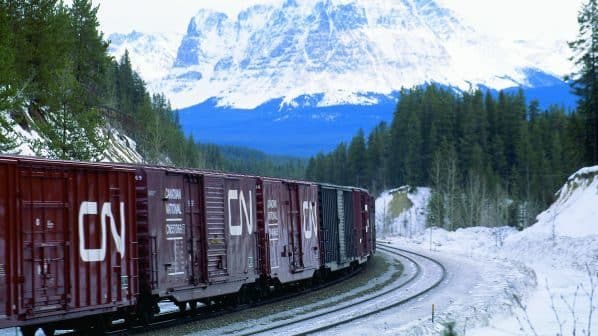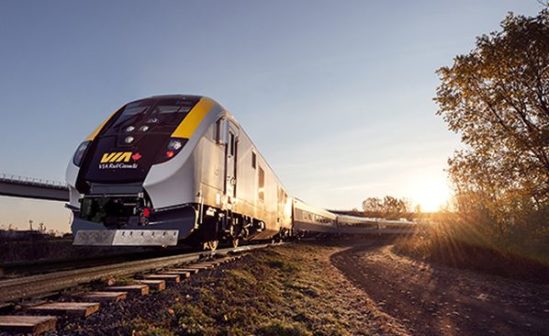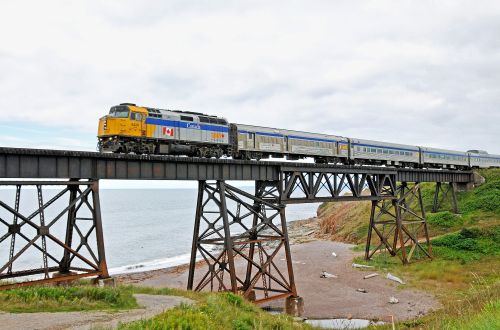THE Canadian government’s 2023 budget, tabled on March 28 by deputy prime minister and minister of finance, Ms Chrystia Freeland, includes a proposal to “strengthen Canada’s transportation systems and supply chain infrastructure,” with $C 210m ($US 155.1m) to be invested in Via Rail Canada over five years.
The budget also includes the establishment of a Transportation Supply Chain Office and a temporary extension, on a pilot basis, of the inter-switching limit in the prairie provinces “to strengthen rail competition.”
The funding for Via Rail will start in the 2023-24 financial year, with an additional $C 117.4m in remaining amortisation, to conduct maintenance on its trains on routes outside the Québec City Montreal - Toronto - Windsor Corridor and to maintain levels of service across its network.
According to the government, this funding is in addition to the $C 42.8m over four years provided in the 2022 budget to construct, maintain, and upgrade stations and maintenance centres in the Québec City - Windsor Corridor.
$C 27.2m will be provided over five years to Transport Canada to establish a Transportation Supply Chain Office to work with industry and other government departments to respond to disruptions and better coordinate action to increase the capacity, efficiency and reliability of Canada’s transport supply chain infrastructure.
The office will collaborate with industry, provinces, territories and Indigenous Peoples to develop “a long-term roadmap for Canada’s transportation infrastructure to better plan and coordinate investments required to support future trade growth.”
The government will provide $C 25m over five years to Transport Canada to work with Statistics Canada to develop transport supply chain data that will help reduce congestion, make supply chains more efficient, and inform future infrastructure planning.
The budget also introduces legislative amendments to the Canada Transportation Act to provide the minister of transport with the authority “to compel data sharing by shippers using federally regulated transport services to improve the efficiency of existing transportation infrastructure.”
Legislative amendments will be introduced to the Canada Transportation Act to enable a temporary extension, on a pilot basis, of the interswitching limit in the prairie provinces that allows railways to run on another railway’s lines to access grain hoppers.
“This would support competition among rail carriers by enabling rail companies to access tracks owned by another rail provider within the limit, under rates regulated by the Canadian Transportation Agency,” the government said.
Responding to the budget, the Railway Association of Canada (RAC) called the federal government’s move to resurrect the “failed policy of extended regulated interswitching, misguided and harmful to Canada’s supply chains.”
“This policy will cause Canadians to pay more for virtually everything that moves by rail,” says RAC president and CEO, Mr Marc Brazeau. “With budget 2023, at a time when inflation remains at 40-year highs, extending regulated interswitching - even on a temporary basis - will incentivise congestion in our supply chains while disincentivising private investment.”
RAC said the pilot has been done before, and noted that switching freight multiple times slows the movement of goods by one to two days, or almost 25%; adds to greenhouse gas emissions; and adds costs.
“The measures announced today will not improve the efficiency, capacity or reliability of Canada’s supply chains,” Brazeau said. “They will do the exact opposite, as we saw under extended regulated interswitching that was in place from 2014 to 2016.”
RAC also reported that it “opposes the government’s move to ban the use of replacement workers in federal workplaces affected by work stoppages.”





